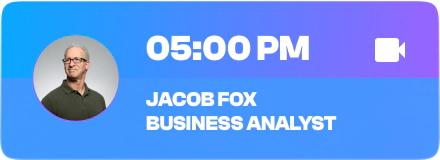6 Boring Email Cliches, and How to Avoid Using Them
It can be difficult not to fall back on the common language we use in written communication when your day involves sending many emails. But do you ever grow tired of typing “I hope you’re doing well” and “Have a wonderful day” over and over?
Some think that, although being mainly meaningless, email clichés serve a purpose. You were at least considerate enough to open and close your email with those polite sentiments, even if you didn’t actively worry about how the person you’re addressing is doing or whether they’ll have a good day.
Do you want to improve your email experience? We have compiled a list of terms that are best not to use in your emails.
1.“I’m sorry…”
Alternatives: ” When you have the time…”.
Don’t apologize in your emails unless you’ve done anything that requires a true apology. You’re putting yourself in the position of being the least of two evils, and you may come out as cynical. You must value yourself and establish yourself as a team member.
Try something like “When you have the time, I’d much appreciate your input on…” to boost your confidence.
2.“I hope this email finds you well.”
Alternatives: “I hope all is well!” “Happy Monday/Tuesday/Friday/Whatever!”
This is a cliched line that you should avoid using in your emails today. It may sound pleasant and innocuous, but it is so overused that it makes you appear inexperienced.
You should use phrases like ‘hope your week is going well,’ or ‘the past several months have been difficult for many businesses, but I hope your plans are progressing well.’ Then you can move on to your main argument.
3.“I just wanted to check in…”
When we wish to be direct, we are typically polite. We commonly use phrases like “I’m just writing an email to verify if you received my bill” or “I just wanted to check so that…” when we’re expecting a response and haven’t received it.
Instead of going out and saying, “You haven’t paid our bill, please make sure you pay attention to this,” we write “I just wanted to check in…”. This makes us think that we do not want to bother this person, who sincerely needs to explain to us.
4.“Looking forward to hearing from you.”
Nobody likes this one, because it seems to imply “You’d better write back.”
Alternatives: Are you available at 3 pm EST?
This is one of the most regularly used sentences in email, whether it’s business or personal communication. Instead of stating, “I hope to hear from you,” tell them exactly what they must do after reading your email. Indicate when you are available to take a phone, respond to an email, or meet up. This would be beneficial to both parties.
5.“My apologies for the late response…”
Don’t say sorry, say thanks: “Thanks for waiting and for your patience while I rummage through my bombarded inbox”
We frequently receive late email responses and the generic phrase that typically comes with them, and if you are one of those folks who is sending it, you may end up aggravating the recipient rather than receiving a nice sympathy.
Instead of this cliche, find a way to express your gratitude, such as “Thank you for your patience as I sift through my overflowing email.” This will not only address your apology problem, but it will also help you appreciate the individual who will receive your email.
6.“Would it be possible…”
Phrases like “Would it be possible”’ or “I hate to bother you…” unnecessarily bloat emails with extra words and undermine the main message you’re trying to send.
We hope our shortlist will help you diversify your responses and improve the quality of your emails.




